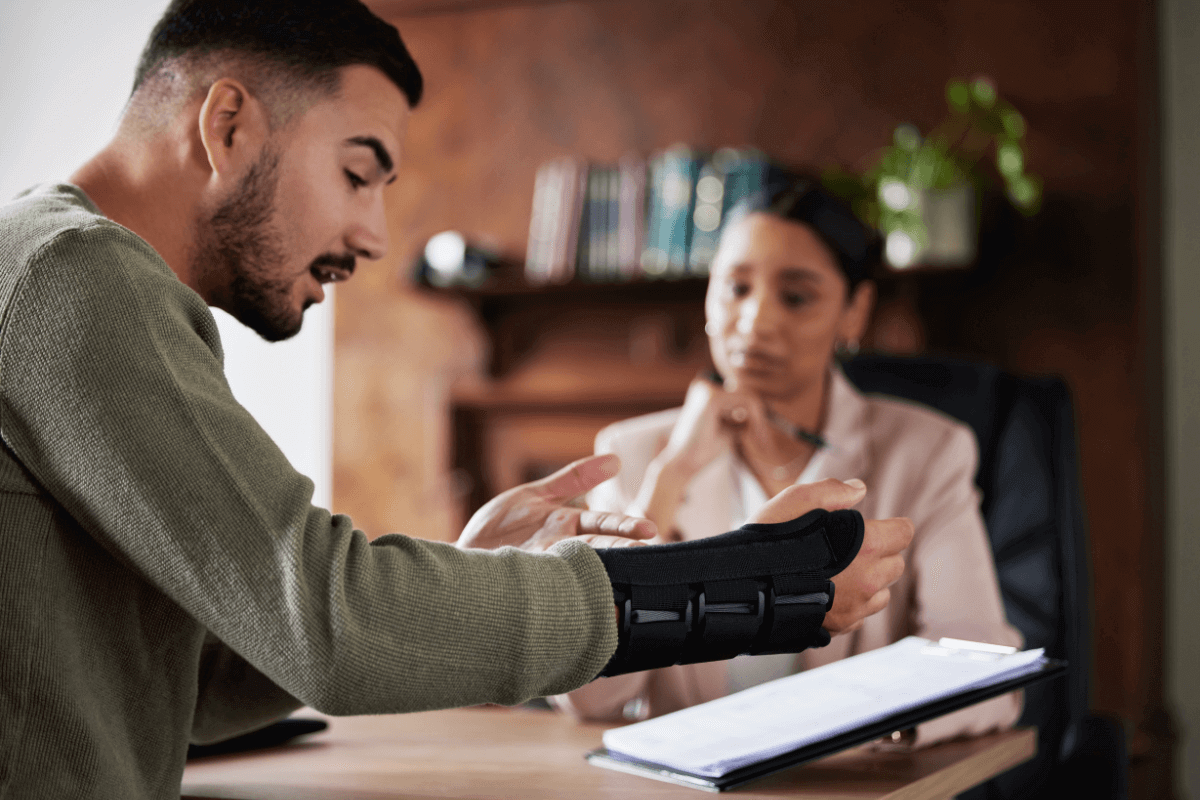
Partner at AKD Lawyers
Practice Areas: Personal Injury

Louisiana personal injury statute of limitations and other key laws have recently undergone significant updates—changes that could directly impact your right to compensation. Whether you’ve been injured in a car crash, slip and fall, or medical malpractice incident, understanding these reforms is crucial.
From tighter filing deadlines to new rules on medical expenses and fault evidence, the way personal injury claims are handled in Louisiana has shifted. If you’re considering filing a claim or are unsure how these changes affect your case, this guide will walk you through everything you need to know to make informed, timely decisions.
Louisiana’s Civil Justice Reform: What Prompted the Change?
Louisiana lawmakers passed the Civil Justice Reform Act in 2020, and it became operative on January 1, 2021. This legislation was designed to address growing concerns about court congestion, inflated claim values, and insurance premiums. The new laws introduced stricter limits on recoverable damages and aimed to encourage faster settlements.
The Civil Justice Reform Act of 2020 lowered the jury trial threshold from $50,000 to $10,000, increasing the likelihood of jury involvement in personal injury disputes.
This shift means a panel of peers may now decide many claims that previously would not qualify for a jury trial.
Understanding Louisiana’s Statute of Limitations for Personal Injury
In Louisiana, the timeline for filing a personal injury lawsuit is short—just one year from the date of the injury.
In Louisiana, personal injury victims must file their claims within one year from the date of injury under Civil Code Article 3492.
This is one of the shortest deadlines in the country, and missing it can mean permanently losing the right to compensation. The same one-year limit generally applies to medical malpractice cases, though it may begin on the date the injury was discovered if the harm wasn’t immediately apparent.
There are rare exceptions, such as cases involving minors or delayed discovery, but it’s always best to speak with a lawyer as soon as possible.
Key Changes That Affect Personal Injury Claims
Several changes have been made to how courts handle personal injury cases in Louisiana:
Jury Trial Threshold Lowered
The dollar amount needed to qualify for a jury trial has dropped from $50,000 to $10,000. This opens the door for more cases to go before a jury, especially in smaller claims that previously stayed in bench trials.
Seat Belt Evidence Now Allowed
Before the reform, defendants could not raise the issue of whether a plaintiff was wearing a seatbelt. That rule has changed.
Evidence of whether a plaintiff was wearing a seatbelt is now admissible in court and may affect comparative fault assessments.
This means not wearing a seatbelt could reduce your compensation based on shared responsibility for injuries.
Limits on Medical Expense Recovery
One of the most debated changes involves how medical expenses are calculated.
Under Louisiana’s updated rules, plaintiffs can only recover the amount actually paid for medical care—not the amount billed—due to changes in the collateral source doctrine.
For example, if a hospital billed $20,000 but your insurer paid only $7,000, your recovery would now be based on the $7,000.
Restrictions on Insurance Disclosures
Previously, insurance coverage was sometimes disclosed to juries. The new rule limits this information to specific circumstances, such as when it affects witness credibility or is directly relevant to the dispute.

Louisiana’s Comparative Fault System
Louisiana follows a pure comparative fault system. That means a person can still recover compensation even if they are partly to blame for the accident. However, the compensation is reduced by the percentage of fault.
Due to Louisiana’s pure comparative fault rule, a plaintiff may still be awarded damages even if they are found to be 99% at fault; however, the judgment will be lowered as a result. .
For example, if you were found 30% at fault and awarded $100,000, you would receive $70,000.
This system aims to ensure fairness, especially when both parties share responsibility. The recent repeal of the seatbelt gag rule makes it more likely that plaintiffs who failed to buckle up will be assigned partial fault.
Can You Settle for More Than the Insurance Policy Limit?
In most personal injury cases, settlements are limited to the insurance policy’s maximum coverage. However, there are situations where you may recover more.
Courts may allow settlements above policy limits in cases involving multiple claims or insurer bad faith.
For example, if an insurer refuses a reasonable settlement offer and the case goes to trial with a higher verdict, they may be held responsible for the full Amount. These cases are complex and require skilled legal help.

How These Changes Affect Claimants
While the reforms aim to make the legal process more efficient, they also introduce new challenges for injured individuals.
- The lower jury threshold could lead to more trials and longer case timelines.
- Plaintiffs may feel pressure to settle early due to limits on recoverable expenses.
- Not understanding the new rules could lead to unfair settlements.
That’s why working with an experienced legal team is more important than ever. A knowledgeable lawyer can help evaluate whether a settlement offer is truly fair under the updated law.
Key Legal Changes Introduced by Louisiana’s Civil Justice Reform Act
| Legal Element | Before the Reform | After the Reform (Post-2021) |
| Jury Trial Threshold | $50,000 | $10,000 |
| Seatbelt Use Evidence | Not admissible | Admissible |
| Medical Expense Recovery | Full amount billed | Amount actually paid |
| Insurance Disclosure in Trial | Allowed more freely | Limited to relevance and credibility |
| Court Burden | Encouraged settlements | More cases may go to jury |
Frequently Asked Questions
What is the current statute of limitations for filing a personal injury claim in Louisiana?
According to Louisiana law, most personal injury claims must be filed within a year after the injury. This brief window necessitates a quick response.
Are there exceptions to the one-year statute of limitations?
Yes. Exceptions may apply in cases involving minors, latent injuries, or when the injury was not immediately discoverable.
Can I still file a claim if I wasn’t wearing a seatbelt during the accident?
Yes. But your compensation could be reduced under comparative fault rules, as seatbelt usage is now admissible evidence.
What does it mean that medical expenses are now based on “amount paid”?
It means you can only recover the actual Amount paid by insurance or out-of-pocket, not the full Amount billed by providers.
Can I get more than the insurance policy limit from the at-fault party?
It’s rare but possible. Courts may allow settlements above policy limits in cases involving multiple claims or insurer bad faith.
Why is the lowered jury trial threshold significant for personal injury claims?
It makes jury trials more accessible for smaller claims, which can influence how cases are litigated and settled.
Conclusion
Louisiana’s personal injury law has evolved significantly. With new limits on medical damages, the admissibility of seat belt evidence, and stricter timelines, it’s more important than ever to stay informed. These changes affect not just how claims are handled but also how much compensation you may receive.
Please make an appointment for a free consultation with Alvendia, Kelly & Demarest Law Firm right now to find out how they can support your future.
Categories

In 2003, after being dissatisfied with the quality of legal care for victims of car accidents, Roderick ‘Rico’ Alvendia sought to establish a new firm focused on providing high-quality legal services to aid injured victims and their families. J. Bart Kelly, sharing Rico’s passion for upholding justice, joined the firm later that year, and established a partnership.






